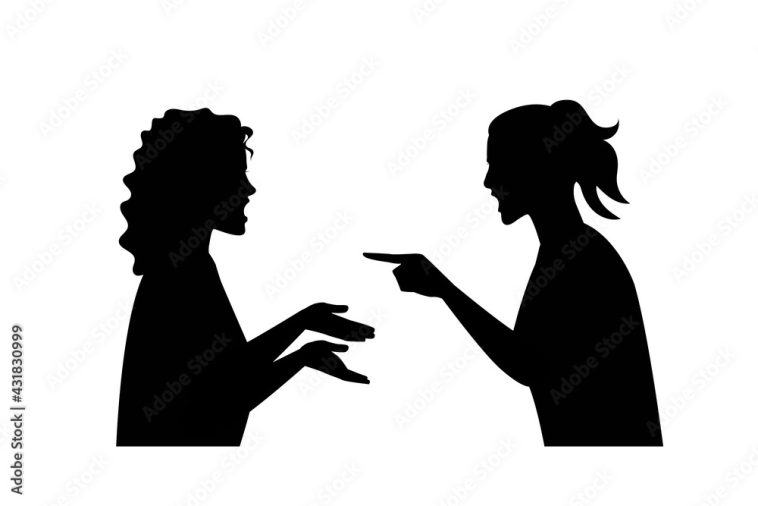Everyone knows that in the movies, when a woman enters an empty parking lot and hears the clip-clopping of her heels on concrete, and when the fluorescent bulb starts to crackle and blink, something horrible is about to happen to her.
I have the same feeling about bathrooms. One day, you’ll be washing your hands, look up, and there will be a stranger behind you, his fingers tightening around your throat, whispering something absurd like, “Your money or your life.” Maybe I watch too many movies.
Then again, that’s exactly how I met her.
She had been watching me long before I went to the washroom. I’d been watching her, too. Maybe she was trying to place me. Maybe she was the type who disapproved of women taking swigs of beer straight from the bottle, and in broad daylight no less. But I knew better.
I pretended to read, tracing a finger along the condensation of my Nile Special, fighting the warmth rising in my cheeks. She was playing with her food—twirling offals into rice with deliberate, almost surgical precision—but barely eating. Then she abandoned all pretense and turned her attention to me, watching openly. I kept my head bent, eyes trained on my tattered copy of John Ruganda’s Black Mamba, but nothing she did escaped me.
The kafunda was the kind where furniture was clearly an afterthought. The carpenter had taken his deposit and never returned, leaving plastic Pepsi-branded table covers flapping in the breeze. The wobbling chairs had her shifting, but she crossed her legs at the knee, poised despite it all.
She had gorgeous legs.
I held my breath. If I moved, even slightly, she might disappear, and I had a nagging feeling that something important needed to happen between us. But when nature calls, it bellows, like your mother calling you to supper for the fifth time. I got up, walking past her table toward the washroom. And when I looked back, she had turned in her chair to watch me leave.
Before the toilet even flushed, I knew it was her. The unmistakable scent of Sí—her perfume, the one I had helped buy—hung thick in the humid air.
She joined me at the sink, pumping the soap dispenser with unnecessary aggression. Watching me through the mirror, she rubbed the foam between her fingers as if testing its worth. I rinsed my hands, dried them on my jeans, and turned to face her.
“You’ve been staring at me.”
She smirked, not denying it.
“Do I remind you of someone?” I asked, trying to steady my voice. My pulse was a drum in my ears.
She tore out a paper towel and dried her hands with slow, deliberate strokes. Then she turned, stepping close enough that her breasts nearly brushed against mine. She smelled expensive, dangerous.
“You have beautiful skin,” she murmured.
I gripped the sink behind me for support. She moved closer, arms caging me in against the cold granite. Our faces were mere inches apart, and for a fleeting moment, I wondered if she was going to kiss me.
That perfume again. It clouded my senses, thick with memories left buried. I shut my eyes, willing her away. But when I opened them, she was still there, lips curled in a knowing smile.
“You asked if you remind me of someone,” she said softly.
I nodded.
She leaned in, her breath warm against my cheek. “You remind me of nothing. Zilch. You’re nothing.”
The words slapped me harder than a hand ever could. Her voice, razor-sharp with contempt, ricocheted against the tile walls. Then, as if the outburst drained her, she exhaled and said, almost conversationally, “He will use you. And when he’s done, he’ll come back to me.”
She searched my face, eyes burning. “You think you’re important?”
I didn’t think I was, certainly not in the way she thought.
But sex is important to men, so much so that in the past, they have fought and been killed because of it and will continue to be.
She was crying now. And I realized what I’d mistaken for amusement earlier was pure undiluted pain.
“What does he see in you?” she whispered, looking me over with something between rage and disbelief. The scuffed sneakers. The sagging jeans. The faded chiffon blouse that had long since lost its fight with time.
It was true. On a good day, I could certainly get a few heads to turn but next to her, I was a blade of grass beside an orchid.
I gave her a rueful smile, not meaning to provoke. But it did. It’s unsettling to face what you fear and find it smiling.
“You’re a slut. A morsel. A snack before he returns to the main meal”
I sighed, patience waning. “Your husband isn’t a saint.”
“We have four children. Four!” The number hung heavy in the air. Then, as if the weight was too much, she crumpled to the floor, sobs wracking her body.
What kind of pain makes an impeccably dressed woman sit on a filthy bathroom floor?
“Let’s talk outside.” I reached for her, but she batted my hand away.
“I’ll be at my table,” I said, voice even. “I’ll wait for five minutes. If you want to talk, I’ll tell you everything. But don’t sit here ruining a perfectly good skirt over a man who isn’t worth it.”
She lifted tear-glazed eyes. “Does he love you?”
Ah. That unoriginal question. The human mind is a strange thing. When faced with something unexplainable, it scrambles for the nearest, most logical conclusion.
I thought of how he always took off his wedding ring and made me wear it. Of how, after sweat-slicked passion, he whispered my first name with his last name, trying it on for size. How he traced my lips with his fingers, murmuring, I love you, I love you, I love you.
How, not five minutes later, he’d answer his phone—Honey, the jam is crazy. I’m still at the office.
He’d swing his legs over the bed, tugging the sheet over himself when the phone rang— a futile attempt at privacy, as if it could shield her from the uncouthness of our union.
How he’d say, I can’t believe I missed giving Baraka her bath again! Give her a kiss for me. And here’s one for my favorite girl in the world, while I lay beside him, tangled in sheets that still smelt of sex.
And then, as soon as he hung up, how he’d pull me back into him, hungry, as if that conversation had never happened.
Mario Puzo once wrote: Do you believe a man can truly love a woman and constantly betray her? Never mind physically, but betray her in his mind, in the very poetry of his soul?
It’s not easy, but men do it all the time.
So. Did he love me?
Maybe. Maybe not. But after me, there would be another one. There always is.
“No,” I said softly. “He doesn’t love me.”
What is love that is illicit and laced with a million lies?
She exhaled, almost relieved. I felt sorry for her.
“I’ll be at the table,” I repeated, turning to leave. “Come, and if you want, I’ll tell you everything.”
I returned to my seat, my heart still pounding, my mind replaying our conversation in the bathroom. The kafunda had taken on a different energy. The laughter from a group of boda boda riders in the corner sounded distant, like an echo from another world. The bartender wiped down the counter with a damp rag, oblivious to the small storm that had just passed through his bathroom.
I picked up my Nile Special and took a long sip, hoping the bitterness would ground me. But my hands were still unsteady. My eyes flicked toward the bathroom door. Would she come?
She did.
When she emerged, she moved with the deliberate grace of someone trying to regain their dignity. But I could see it—the slight tremor in her fingers as she smoothed down her skirt, the way her eyes darted around as if she wasn’t sure she wanted to be seen. She walked towards me, her Fanta abandoned on her previous table, her purse clutched tightly in her hand.
She sat down across from me. For a moment, we just looked at each other.
“Tell me,” She said finally, her voice hoarse “I want the truth,” she said.
“You already know what kind of man he is,” I said carefully. “But maybe you don’t want to admit it.”
I grew up hearing that women are born to endure. A man’s betrayal is a storm you are expected to stand in, head bowed, waiting for the sun to return.
I sighed and put down my bottle. Where did I even start? Did I tell her about the first time we met, how he’d charmed me with his easy laugh and intelligent eyes? How later, he had spoken of her, not as a wife, but as a responsibility, something expected of him but not something he chose?
I’d known that he was married. I saw the ring the first time I met him. It caught the light when he lifted his glass, and I looked at it, and I looked away.
The bar was small, quiet. The kind of place where people went to forget things. I had gone there to drink, to be alone, but not to stay that way. He was two stools over. He was drinking whiskey, slow, deliberate, with an ease that suggested it wasn’t his first drink of the evening.
“Rough day?” he asked.
“Aren’t they all?”
We drank. We talked some, but mostly we didn’t. Silence did the work. He told me his name was Munyi. He worked in real estate and lived on the outskirts of town but came here more often than he should. That was all he said. That was all I needed to know.
I told him I was between jobs. That I was thinking of leaving town. That I liked the music here. Some of it was true. Some of it wasn’t.
His fingers drummed against the bar, and he watched me, his ring finger against his lips. I should have finished my drink. I should have left.
He bought me another round. And then another.
It was easy. Easier than it should have been. He made me laugh. He leaned in close, and I let him. When his hand brushed mine, I didn’t pull away.
I told myself a story. That maybe his marriage was a technicality, a thing that had ended in spirit but not in the law.
The first time was in a hotel room. I said it was a mistake. That it wouldn’t happen again. But it did. It always does.
Some nights, I lay awake, the guilt coming in waves. I thought about ending it. I told myself I would. And then he would call.
“I just need to see you,” he’d say. And I would go.
We built something out of stolen time. Places where no one knew us. Messages and call logs that disappeared. Evenings in hotel rooms where the curtains were always drawn.
What made you do it? she asked, quietly.
I could have given her an answer laced with philosophy. Told her about the psychology of infidelity, about how human beings aren’t wired for lifelong monogamy. That in history, kings had mistresses, queens had lovers, and the world went on. That in literature, the greatest tragedies were built on love and its absence. But I didn’t.
“Because I was selfish,” I said simply.
She exhaled, long and slow. Then she did something I didn’t expect.
She laughed.
Her eyes flashed with something—anger, grief, defiance. “And you?”, she asked. “Do you love him?”
The words sat between us, heavy, waiting.
I thought about the way he’d look at me sometimes, as if I was the only thing that mattered. But I also thought about the phone calls, the way he’d slip on his ring the moment he left my house. How easily he lied.
“No, I already told you,” I said quickly. “I don’t love him.”
I hadn’t said, I realised. About whether I loved him.
She nodded slowly, as if confirming something to herself.
“Then why? I could hear the bewilderment in her voice. “Why continue to be with him?”
There are two kinds of people in this world: those who believe morality is absolute and those who know it bends. I suspected she was the former.
A bitter laugh escaped me before I could stop it. “Why do you stay with him?”
Her lips parted, but no words came out.
Outside, the sun was beginning to set, casting long shadows across the dusty road. The kafunda was filling up now, more people trickling in after a long day’s work. The air smelt of grilled meat and sweat, the sounds of the city wrapping around us like a heavy blanket.
She stood up abruptly. “I should go.”
I nodded. What else was there to say?
She took a step away, then hesitated. “If he calls you again, will you go?”
I looked at her. Really looked at her. The pain in her eyes, the quiet pleading beneath her composed exterior.
I wanted to say no. I wanted to be the kind of person who made the right choices. But that was the thing about infidelity. It wasn’t about right or wrong. It was about need, about longing, about the spaces people left in you that someone else could fill, even temporarily.
“I don’t know.”
She smiled then, a slow, tired thing. “At least you’re honest about that.”
I nodded.
Why did you come?” I asked. “Why not just leave?”
She smiled, but it didn’t reach her eyes. “Because harm lingers. And I wanted to know if you understood that.”
Then she turned and walked away.
Somewhere in the background, the sounds of Kampala carried on—distant music from a passing car, a dog barking down the street, the murmurs of a city that did not care about two women: one wrestling with the assumption that she was the villain, the other with a conviction that she was just another casualty in the war of human desire.
I stood there long after she had gone, the mosquitoes buzzing above me. The night had swallowed her figure, leaving only a shadow on the pavement.
When my phone rang, I didn’t need to look. I already knew.
I answered. “Hey,” I said softly, the word a surrender. “Hello. I missed you.”
This post was created with our nice and easy submission form. Create your post!









